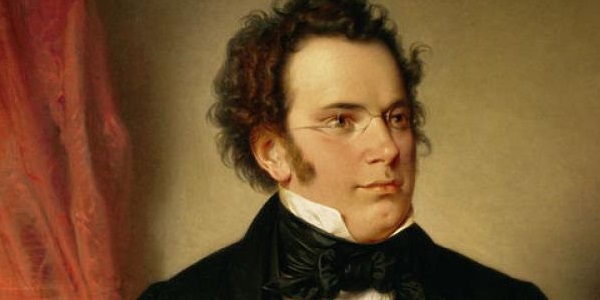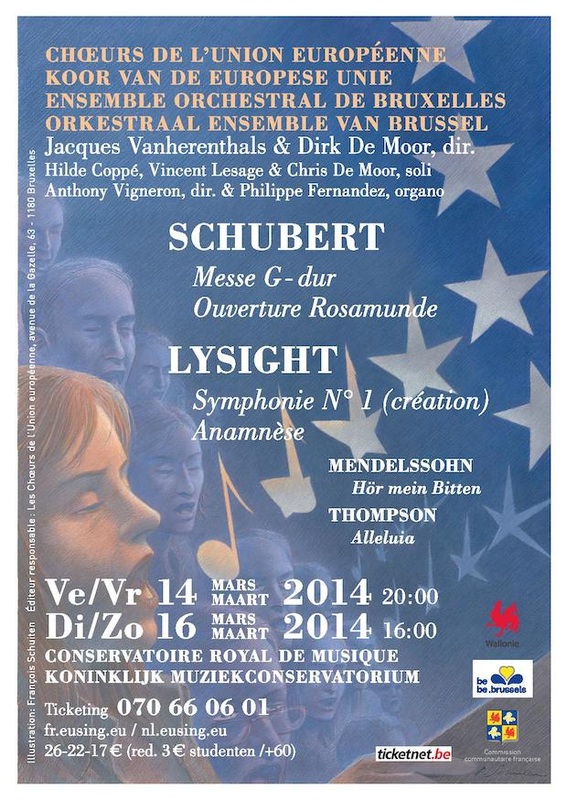| Key turning points in European classical music A common thread that unites Franz Schubert and Michael Lysight and which cannot be ignored is that both represent important turning points in the history of European classical music; the first freeing itself from the constraints of classicism while the second revives tonal music. Born in Vienna on 31 January 1797 and dying in the same city on 19 November 1828, Franz Schubert is one of the greatest composers of the 19th century and the undoubted king of German song. At the dawn of romanticism, Schubert studied composition and counterpoint under the master of classicism: Antonio Salieri. He moved away from this tradition to give priority to expressing emotion. Motivated by the same desire, though in a different context, Michael Lysight, born in Brussels on 14 October 1958, is a leading contemporary composer and one of the foremost composers in the movement for new music rooted in tonality. From Schubert… For the beginning and end of our musical journey, two bright works from Schubert’s repertoire will illuminate the wide-ranging facets of the composer. Firstly, Schubert takes us into the Mediterranean palace of the princess Rosemunde with the overture to the romantic play that he set to music in 1823. With wonderful writing for the woodwind, this work has often been cited as the missing movement of the famous Unfinished symphony. A bright and tuneful work, the Mass in G leads us into the spiritual world of Schubert. Composed by the 18 year old Schubert in just six days in 1815, the work highlights his immense gifts as a composer. This Mass is the most recognized of the three ‘missa brevis’ by Schubert and was composed while he was still under the tutorage of Antonio Salieri, then director of the Imperial Court in Vienna. ….to Lyisght Michael Lysight leads us to another turning point in classical music; the return to tonal music which had been discarded to a large extent in the 20th century. Michael Lysight will be at the centre of our journey into unknown territory with the world premiere of his first symphony. Anamnese, a choral work which warns against collectively forgetting the past, focuses on the dark days of modern history in order to enlighten the future. We would like to hear from you Dear cultured friends, during our next concerts, we offer you the chance to provide us with your views by answering a short questionnaire. We thank you in advance for taking part. | "A common thread that unites Franz Schubert and Michael Lysight and which cannot be ignored is that both represent important turning points in the history of European classical music" Program · Ouverture Rosamunde op. 26 - Franz Schubert · Symphonie n° 1 (création mondiale) - Michel Lysight · Anamnèse - Michel Lysight · Hör mein Bitten – Felix Mendelssohn · Alleluia – Randall Thompson · Messe en sol majeur - Franz Schubert Ensemble Orchestral de Bruxelles Hilde Copé, soprano – Vincent Lesage, ténor – Chris De Moor, basse Jacques Vanherenthals, Dirk De Moor et Anthony Vigneron, direction Philippe Fernandez, orgue Dates Vendredi 14 mars 2014 à 20 heures Dimanche 16 mars 2014 à 16 heures Lieu Conservatoire royal de Musique de Bruxelles |
|
For its spring concerts, the European Union Choir invites you to joint it on a journey full of romanticism and passion. The works by Franz Schubert and Michael Lysight bridge different musical styles, separated by time and place and yet united through a common desire to arouse emotion. To know more... To mark the bicentenary of the birth of Franz Schubert in 1997, the European Union Choir concentrated on two key works, central to Schubert’s majestic output: the German Requiem and the Mass in F. In 2001 the Choir performed the wonderfully spiritually uplifting Mass in B minor. In 2010 it was the turn of Michael Lysight to be at the centre of activities with the world premiere of ‘Les Chants de Casanova’. For its next spring concerts, the EU Choir and the Orchestral Ensemble of Brussels will continue to explore the works of these composers. |
Archives
December 2023
Categories
All
|



 RSS Feed
RSS Feed